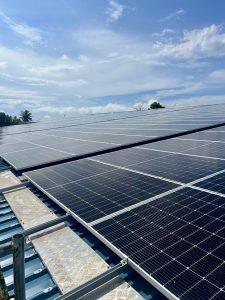How Renewable Power Reduces Emissions
At Pope Packaging, sustainability is action, not just a word. Our Sri Lankan facility, Plastipak Lanka, has taken a bold step forward by adopting a solar energy system. As a result, 20% of factory power is now solar, and 47.5 tonnes of CO₂ emissions are cut every month. This real change shows our commitment to doing better, not just saying it.
The solar energy shift at Plastipak Lanka is part of a wider plan. It’s designed to reduce reliance on traditional power sources and bring long-term benefits to both our business and our environment. By switching to solar, we are reducing costs and improving energy efficiency. At the same time, we are helping customers meet their own sustainability goals.
This shift isn’t just about lowering bills, it’s about building a future that makes sense for business and the planet. According to the Clean Energy Regulator, solar adoption continues to grow across Australian industries.
-
20% of total factory energy now powered by solar
-
47.5 tonnes of carbon emissions cut monthly
-
Lower operational costs for long-term savings
-
Better alignment with customer sustainability goals
We believe change must be constant. That’s why we continue to look for more renewable power options across our sites. Because when energy is cleaner, everyone wins.
This move is more than just a project. It reflects how we see the future, responsible, cost-effective, and powered by solutions that work. As other regions follow, we’ll share those stories too. We’re proud of the work our team is doing, and always looking for like-minded people to join our journey.
Every solar panel installed is a step toward progress. One kilowatt at a time, we’re building a better way forward. Because the shift isn’t coming, it’s already happening.
Sustainability Initiatives
Learn more about our sustainability initiatives and how they support long-term change. You can also follow us on LinkedIn to keep up to date with our latest news.
